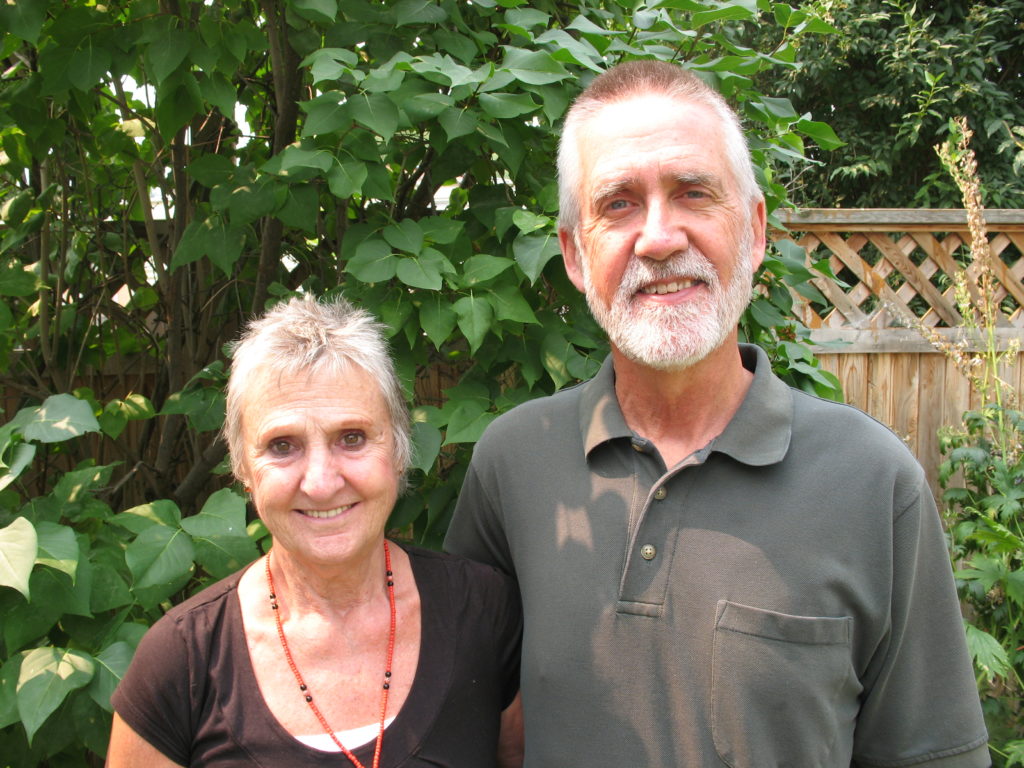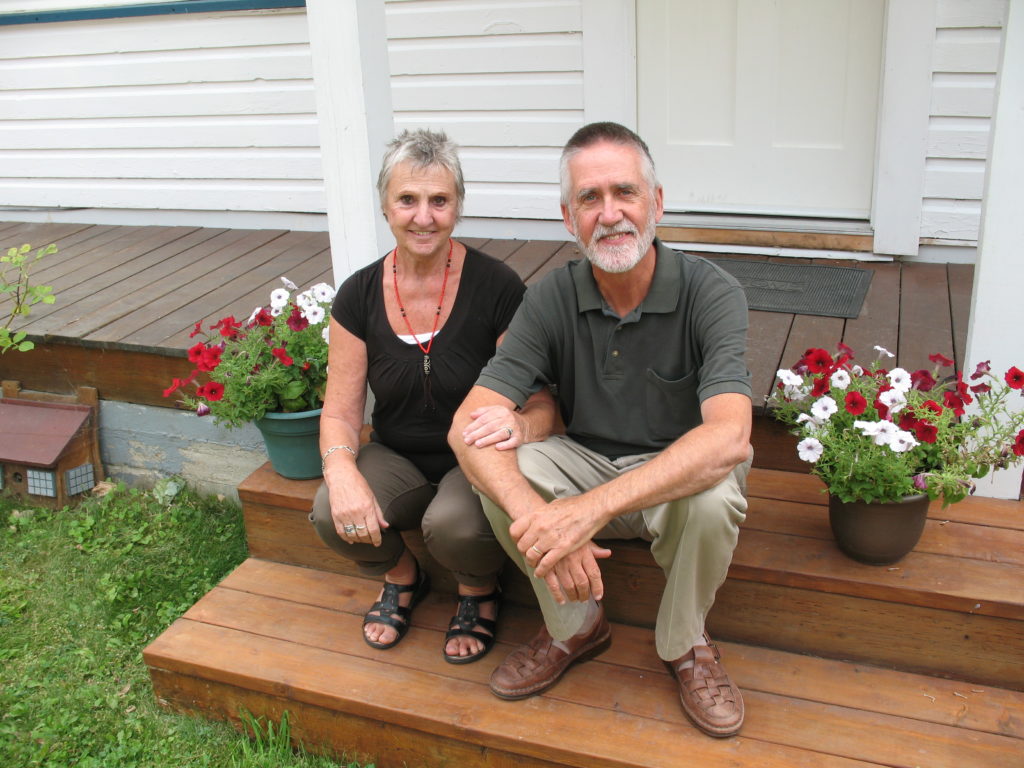
Thirty six acres straddling the Tulameen River several miles from Princeton seems an unlikely, overly serene retirement setting for a couple that has traveled, worked and lived in diverse places around the globe. For Ed Staples and Nienke Klaver though, it’s just right. Their wide ranging experiences had prepared them to take a leadership role in striving for better health care in the Similkameen valley.
Sitting in our sun room with a cup of steaming coffee in hand, Ed said, “our time in other countries made us more compassionate. In Chile we watched a young boy playing with an old, deflated soccer ball. I bought a new ball. When I handed it to him, his expression of gratitude and wonderment was life changing. What we experienced helps us understand how fortunate we are in Canada.”
Nienke nodded and said, “One day in Lhasa, Tibet we were walking in a circle, participating in a ceremony. An elderly woman grasped my hand and walked beside me. We didn’t understand each other but we smiled a lot. The needs and wants of people are very similar.”
Nienke came to Canada in 1981 to visit her sister and pursue a masters degree at the University of Victoria. Ed had recently returned from 3 years of teaching in Saudi Arabia. They met one evening when Nienke and her friend Gwen ran out of gas a block from Ed’s home. Gwen knew him so she asked if he had gas. He did and gave it to them. A few days later Ed accompanied them to a Doug and the Slugs concert. He and Nienke sat side by side and it was the beginning of a romance that blossomed into marriage and a life long adventurous partnership.
They traveled extensively and have memories that still influence their thinking and values. “Some roads in Paraguay were so bad I didn’t take the Toyota out of first gear,” Ed said. Tibet provided aunique experience. Two Buddhist monks invited them to their monastery. Here they were granted a rare private audience with the Rinpoche, a highly revered religious leader who had trained with the Dalai Lama. In Japan, where they lived 10 years, Ed taught music at the American School in Japan and Nienke taught violin. She has played with symphony orchestras in Amsterdam, Victoria and Edmonton.
Upon returning from Japan they bought the acreage outside Princeton. “Traveling and living in other countries gave us a greater appreciation for what we have in Canada,” Ed said. “It helped us understand more fully that people need to accept responsibility for the well being of their community. It doesn’t just happen.” He recalled his father’s words, “if you want things to change, you need to get involved and help bring about the change.”
“We became aware of a gradual erosion of health care in our community,” Nienke remembers. “We had only one doctor on call. Then there was an announcement that the Emergency Ward in our hospital would be closed 4 nights each week.”
When Nienke began circulating a petition on behalf of health care in the area, Ed was initially reluctant. Seeing people were concerned and were signing the petition, he too became active. “At first people didn’t believe anything would change. Nienke isn’t afraid to try things though,” he observed. “She persevered in spite of the pessimism.” The petition collected 3,600 names and public officials took notice.
Ed and Nienke are grateful for the support and help they received from others. Brad Hope (Area H Regional Director at that time) and his wife June were knowledgeable and helpful. “Also,” Ed said, “we received good advice from Walter Despot, former mayor of Keremeos. He gave us a tour of the South Similkameen Health Centre and advised us to work constructively with Interior Health. There we met Susan Brown. Without her, nothing would have happened. Dr Monro of Princeton has provided great ideas. She’s a firecracker! We became collaborative, not confrontational.”
They developed Support our Health Care (SOHC), a local grassroots organization dedicated to the improvement of Princeton’s model of healthcare. It has joined the B.C. Health Coalition. SOHC has begun working with similar organizations in other rural communities.
“We now have visiting specialists, and Princeton and Keremeos have Community Paramedicine programs,” Nienke said at the end. Ed added, “we can’t claim the credit, but our group has developed fertile ground for improvements in health care.”


One thought on “Collaborating For Better Health Care”